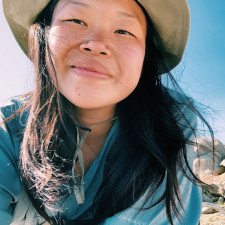If you’re applying to college, you probably have a preconception about the relative importance of volunteering on your college application. In this blog post, learn the type of volunteering activity that can actually make a difference to colleges and what to highlight from the experts at VolunteerCrowd.

Chances are if you are getting advice about applying to college, a graduate school program, or your first job, volunteering is among the recommendations. Try googling, “Why is volunteering is important for college?” You’ll scroll multiple pages and have reading material for several days.
Will any volunteering project do? No. However, it is a common misconception that volunteering is about the number of hours when it should be about the depth of experience. Make your time count. Create an impact story that is uniquely yours by following these tips:
Personalize your experience.
When it comes to volunteering, it’s all about giving back; but it’s also about you – what experience you bring, what causes move you to action, and what contribution you want to make. Consider the little things too – the location, physical requirements, interaction with others, and learning opportunity. Make sure the project is a good fit for your personality.
Make it relevant.
A high school student who is an aspiring neuroscience major volunteered full time every summer at the National Balloon Museum. “Huh??? How does a stint at a balloon museum translate into an interest in studying neuroscience? Let’s try that again. A high school student and aspiring neuroscience major volunteered junior year helping to conduct basic lab experiments in the University of California Irvine neurology department.
Think about the person reading your volunteer transcript, whether it’s a college admissions officer or future employer. Your service-learning experience should be part of a broader narrative, adding context and color to your academic focus.
Explain why you care.
“After you read dozens of applications, and every student has a 4.6, they start to look the same,” commented one college applicant interviewer for Harvard. Today there is an overabundance of academic rock stars. Colleges want to know what makes you different, specifically what motivates and inspires you. Your volunteer contribution provides a glimpse of the future you. Connect the dots in your personal statement, “I was raised by a single parent and saw my mom struggle to buy nutritious food. I volunteered at our community garden to both learn and teach others about nutrition and food sustainability. I want to study environmental science to take what I’ve learned and help others on a much larger scale.”
So let colleges get to know you, not just the wicked-smart you, but the human being behind those stellar grades and SAT scores. And while you are spreading all that positivity, you just might discover something about yourself.

















 Back
Back